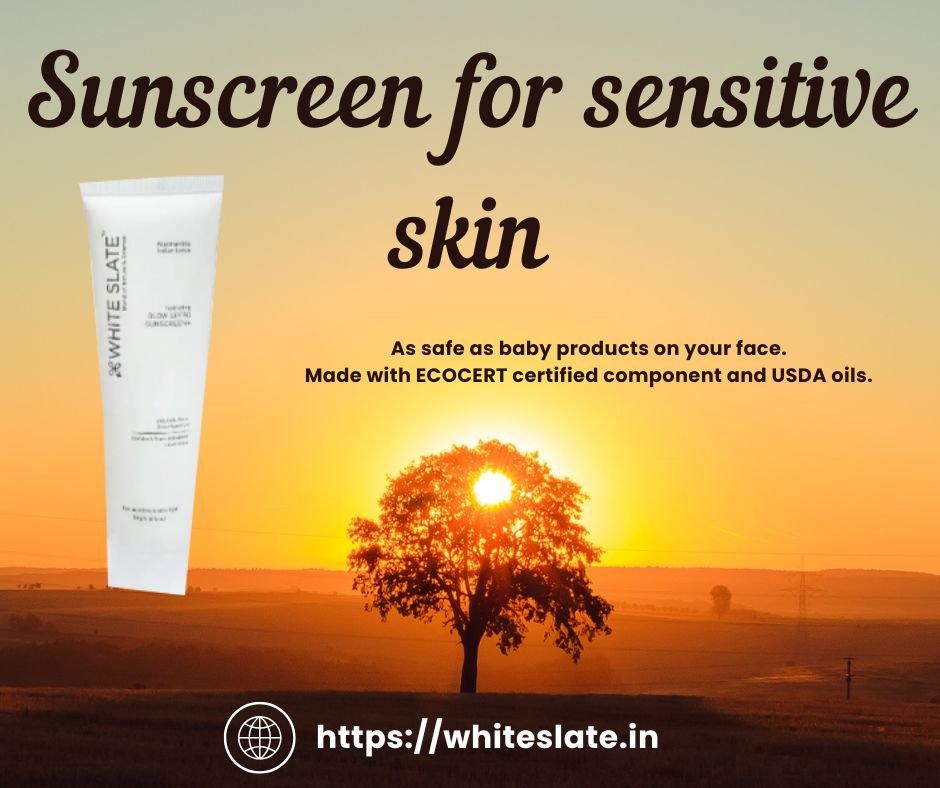
Finding the right sunscreen for sensitive skin can feel like an endless trial-and-error process. Many products promise protection but end up causing stinging, redness, or breakouts. If you have a delicate or reactive complexion, you need a sunscreen that not only shields you from harmful UV rays but also soothes and strengthens your skin barrier. This guide will help you understand what to look for, which ingredients to avoid, and the best ways to keep your skin calm and protected every day.
Understanding Sensitive Skin and Sun Exposure
Sensitive skin reacts more easily to external irritants such as fragrance, alcohol, pollution, and harsh weather. When exposed to sunlight, it can become even more reactive. Ultraviolet (UV) radiation triggers inflammation, increases heat in the skin, and breaks down collagen, leading to premature aging and visible redness. For this reason, wearing sunscreen for sensitive skin every single day—regardless of season or weather—is essential.
Unlike regular sunscreens, products formulated for sensitive skin are designed with gentleness in mind. They avoid common irritants, aim to minimize allergic reactions, and usually contain physical (mineral) filters that sit on the skin rather than being absorbed into it.
What Makes a Sunscreen Suitable for Sensitive Skin
When shopping for sunscreen for sensitive skin, focus on formulas labeled “non-comedogenic,” “fragrance-free,” and “hypoallergenic.” Here are the key features to look for:
- Mineral-based protection: Look for sunscreens containing zinc oxide or titanium dioxide. These minerals reflect UV rays away from the skin, providing broad-spectrum protection without clogging pores or causing irritation.
- Fragrance-free ingredients: Artificial scents are among the most common triggers of allergic reactions. Choose unscented formulas to keep sensitivity at bay.
- No alcohols or preservatives: Alcohol can dry and sting, while parabens and other preservatives may cause redness in reactive skin.
- Moisturizing texture: Sensitive skin often lacks a strong lipid barrier. Hydrating ingredients like glycerin, aloe vera, and ceramides can help strengthen and soothe it.
- Broad-spectrum coverage: Always select sunscreen that guards against both UVA and UVB rays, since both types contribute to damage and aging.
Physical vs. Chemical Sunscreens
Understanding the difference between physical and chemical sunscreens can help you choose wisely.
| Aspect | Physical Sunscreen | Chemical Sunscreen |
| Key Filters | Zinc oxide, titanium dioxide | Avobenzone, oxybenzone, octocrylene |
| Mechanism | Reflects UV rays | Absorbs UV rays and converts them to heat |
| Texture | Slightly thick, may leave a white cast | Lightweight and invisible |
| Best For | Sensitive or acne-prone skin | Normal or oily skin types |
| Irritation Risk | Low | Moderate to high, depending on ingredients |
For anyone with sensitive skin, physical sunscreens are generally the safer choice because they create a protective layer on the surface rather than interacting with skin cells.
Recommended Ingredients to Soothe Sensitive Skin
Choosing a sunscreen for sensitive skin isn’t just about avoiding harsh chemicals—it’s also about including calming agents. Ingredients that help cool and comfort the skin include:
- Aloe vera for its anti-inflammatory and hydrating properties.
- Green tea extract to help reduce redness and fight free radicals.
- Chamomile and calendula, both known for their natural soothing effects.
- Niacinamide (Vitamin B3) to strengthen the skin barrier and minimize irritation.
A combination of these makes your sunscreen double as a calming moisturizer.
Common Mistakes When Using Sunscreen for Sensitive Skin
Even the best sunscreen can cause irritation if applied incorrectly. Avoid these common mistakes to keep your skin happy and healthy:
- Skipping patch tests: Always test a small amount on your inner arm before using it on your face.
- Rubbing too harshly: Dab the sunscreen gently; rubbing can inflame already sensitive skin.
- Applying too little: Many people don’t use enough sunscreen. The recommended amount is about half a teaspoon for the face and neck.
- Ignoring water resistance: If you sweat easily or swim, choose a water-resistant sunscreen to maintain protection.
- Not reapplying: Reapply every two hours or after swimming. Sensitive skin can burn quickly with even short lapses in coverage.
To build an effective skincare habit around sunscreen for sensitive skin, start by simplifying your routine. Use a gentle cleanser, apply a hydrating serum or moisturizer, then finish with a mild mineral sunscreen. Avoid using exfoliating acids or retinoids right before sunscreen application, as these can make skin more reactive. For makeup lovers, an SPF-infused tinted sunscreen can eliminate the need for foundation, reducing the number of layers your skin must tolerate.
Regular use of sunscreen for sensitive skin does more than prevent sunburn. It helps preserve your skin’s texture, tone, and youthfulness by blocking photoaging. It also reduces the risk of skin cancer, pigmentation, and inflammation-related flare-ups. Over time, your complexion will appear more even, calm, and radiant.Daily sun protection is an act of self-care. The right sunscreen is not just a cosmetic product; it’s a vital shield for anyone living with sensitivity or skin reactivity. Make sunscreen for sensitive skin a non-negotiable part of your morning routine, and enjoy the confidence that comes with knowing your skin is both safe and comfortable.
